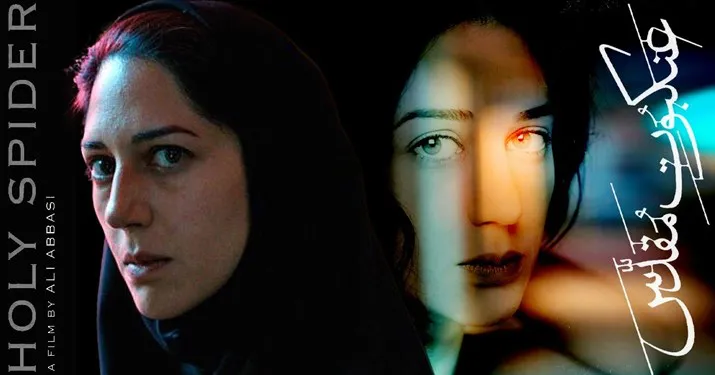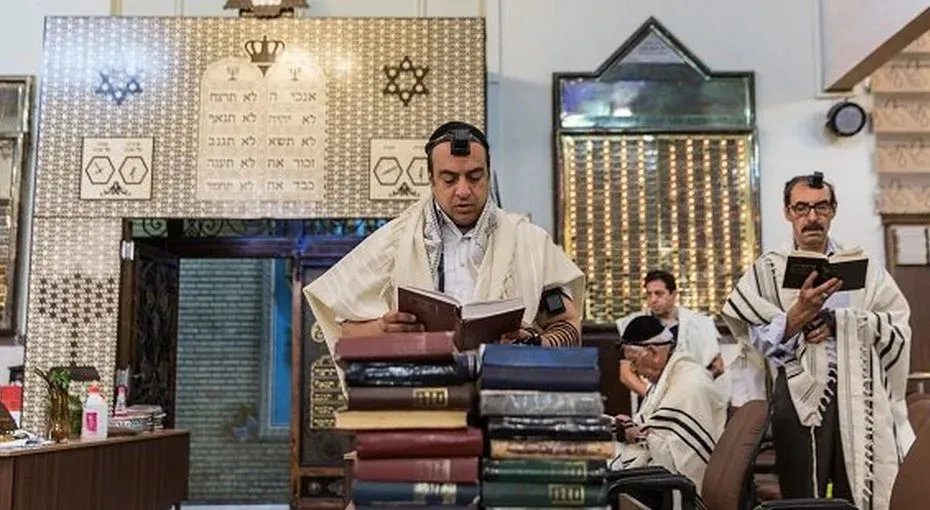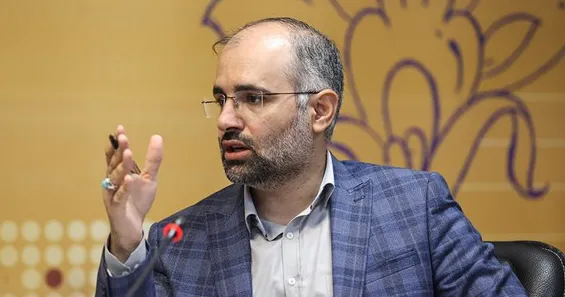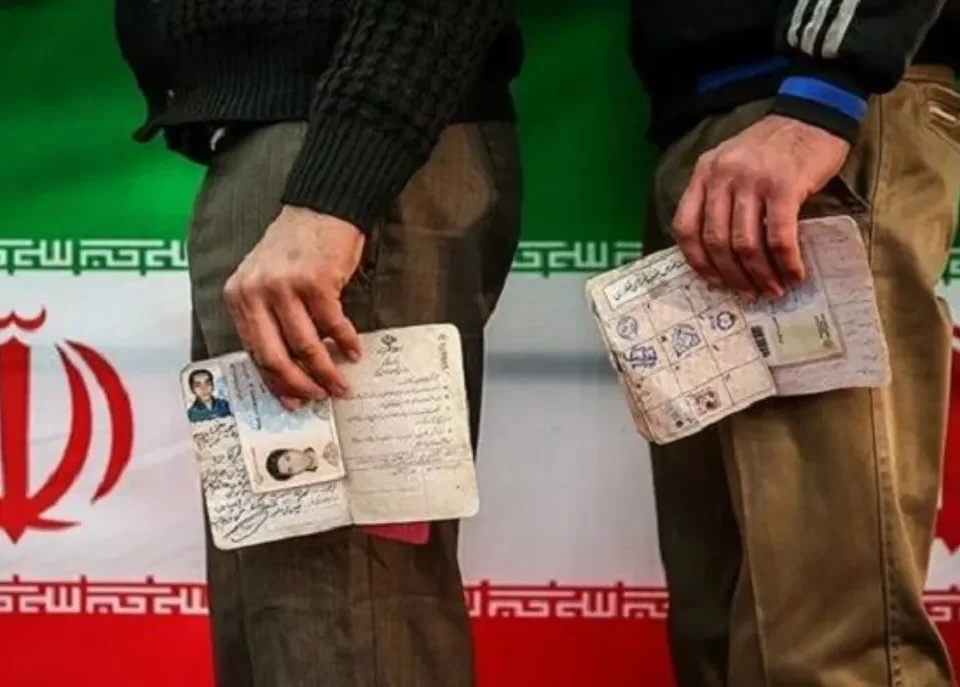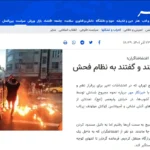
Media Review: Mehr News Agency and the Fake Story of a Basiji
May 7, 2023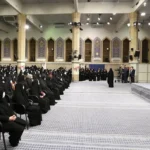
Annotation of Fars News Agency on statements without facts of the leadership
May 7, 2023The “conspiracy theory” has a basis in truth, but it only captures a small portion of reality and exaggerates it to create an imaginary and delusional summary. Abbas Milani defines the conspiracy theory as a clandestine hand that supposedly has omnipotent control over politics, existence, or the world, which is actually a vast field.
The elements that make up the conspiracy theory, according to sociologists, are as follows:
- There are assumptions that connect individuals and events.
- Conspiracy actors operate globally.
- There are malicious and deceitful groups that strive towards their own goals.
- There is a possibility of harm to others by conspirators.
- The actions and identities of conspiracy actors are hidden, making it difficult to debunk conspiracy theories.
Belief in conspiracy theories is rooted in the psychological and personal characteristics of individuals. The conspiracy theory phenomenon is not limited to a specific geography, although it may be more prevalent in societies where censorship is more dominant. In societies where there is no free flow of information, and discussing any phenomenon is not permissible, there is a greater space for the dissemination and development of conspiracy theories.
A report by the Fars News Agency titled “Revelation by a Member of Parliament about the Activities of the Paris Table in the Film Sector of the Country,” published on July 6, 2023, could be a concrete example of the conspiracy theory.
According to Fars, quoting Bijan Nobaveh, the representative of Tehran and the deputy head of the “Cultural Commission” of the Islamic Consultative Assembly, he claims that “a gathering called the Paris Table in the country’s film sector receives dictated scenarios from hostile countries and presents them to filmmakers to portray a negative image of the country.”
In this report, Bijan Nobaveh states, “In previous years, this espionage was carried out more secretly, but in recent years, we have witnessed active individuals in this field engaging more openly in espionage for the enemy.”
Today, espionage is carried out in various forms, especially in the form of cultural activities, and they engage in espionage for the enemy under the guise of cultural brilliance. Artists who seek to portray a negative image of Iranian society through their films are part of the enemy’s plot. The scenarios for such films are mostly provided to these individuals from outside the country, and these artists themselves execute these instructions, even with the involvement of some embassies. About ten years ago, a gathering called the Paris Table became active in our film sector, which received written and dictated scenarios for portraying a negative image of Iranian society in films from hostile countries. The majority of films made based on these scenarios were approved during the reform period. European society itself is plagued by numerous issues and problems, and politicians in European countries try to present an unrealistic and distorted image of Iranian society to deviate public opinion.
The only accurate point in this claim is the bitter themes portrayed in many Iranian films. Everything else mentioned in this report is either “fake news” or “fabricated news” because the narrator does not present any facts or data, nor does it refer the audience to a credible source, and neither the narrator nor the publishing media (Fars News Agency) have credibility to consider the mentioned claim close to reality.
Instances of conspiracy theories are usually interesting examples to introduce fake news or fabricated reports. Such reports rely on incorrect information, and the reporter deliberately tries to mislead the audience and achieve specific outcomes from it.
“The Paris Gathering of the National Cinema Organization” is similar to the “New York Gathering of the Ministry of Foreign Affairs” and the “Reform Security Gathering,” etc., which are mentioned in other news agencies to make an allegation believable without any underlying reality.
Iranian cinema is bitter, but the bitter truths narrated in it are not fake news or fabricated information; they are the realities of today’s Iranian society. The best way to escape responsibility is to resort to conspiracy theories. Instead of explaining why Iranian cinema has become a storyteller and visualizer of disasters, abnormalities, poverty, and misery, the officials have absolved themselves of responsibility by presenting conspiracy theories and blaming the “enemy,” and they try to cover up the shortcomings by diverting public opinion.
The cultural officials refuse to accept that censorship, self-censorship, inspection, filtering, and selection committees have blocked access to many areas and prevented people from accessing the creative content of artists and high-quality cultural products. Therefore, by presenting conspiracy theories, they attribute the causes of events to invisible enemies.
In this conversation, Noubaveh says, “About ten years ago, a gathering called ‘Paris Table’ became active in our cinema sector. This gathering received written and dictated scenarios for blackening the image of Iranian society in the form of films from hostile countries, and most of the films made based on these scenarios obtained permits during the reform era.”
He forgets that more than 17 years have passed since the end of the reformist government.
Having critical thinking is the only way to protect ourselves against the designers and propagators of conspiracy theories. They try to mislead and persuade us with fake information and disinformation so that we accept their fabrications.
مرور رسانهها؛ خبرگزاری فارس و تئوری توطئه محفل پاریس
«تئوری توطئه» ردی در اخبار درست دارد اما تنها گوشهای از حقیقت را میگیرد و آن را چنان بسط میدهد که به یک جمعبندی خیالی و توهمآمیز میرساند. «عباس میلانی» تئوریتوطئه را قائل شدن به یک دست نامریی همهتوانی که در واقع یک عرصه پهناوری از سیاست یا هستی و یا جهان را اداره میکند، تعریف میکند.
عناصر تشکیل دهنده تئوری توطئه از نظر جامعهشناسان به این شرح است:
فرضیاتی وجود دارند که افراد و رویدادها را به هم مرتبط میکنند.فعالیت توطئهچینان، جهانی است.گروهی بدکار و دروغگو وجود دارند که در راستای اهداف خود تلاش میکنند.احتمال آسیبدیدن دیگران از سوی توطئهچینان وجود دارد.کارها و هویت افراد توطئهچین مخفی هستند که باعث میشوند رد کردن تئوریهای توطئه بسیار دشوار شود.
اعتقاد به تئوری توطئه، برآمده از ویژگی روانی و شخصیتی افراد است. تئوری توطئه پدیدهای جدید و منحصر به جغرافیای خاصی نیست، هرچند در جوامعی که سانسور در آن بیشتر حاکم است، احتمالا رواج بیشتری دارد. زیرا در جوامعی که جریان اطلاعات آزاد وجود ندارد و صحبت از هر پدیدهای مجاز نیست، فضا برای نشر و توسعه تئوریهای توطئه بیشتر مهیا است.
گزارش خبرگزاری «فارس» با عنوان«افشاگری یک نماینده مجلس درباره فعالیت میز پاریس در بخش سینمایی کشور» که روز ششم تیر ۱۴۰۱ منتشر شده است، میتواند مصداق عینی تئوری توطئه باشد.
فارس در این گزارش به نقل از «بیژن نوباوه»، نماینده تهران و نایب رییس «کمیسیون فرهنگی» مجلس شورای اسلامی مدعی شده است: «محفلی به نام میز پاریس در بخش سینمایی کشور، سناریوهای دیکته شده توسط کشورهای معاند را دریافت و به فیلمسازان ارایه میدهد تا نسبت به سیاه نمایی از وضعیت کشور اقدام کنند.»
در این گزارش، به نقل از بیژن نوباوه آمده است: «در سالهای قبل این جاسوسیها به صورت مخفیانهتر انجام میشدند اما در این سالها شاهد هستیم که افراد فعال در این بخش با صراحت بیشتری به جاسوسی برای دشمن میپردازند.
امروز جاسوسی در قالبهای مختلف و بهویژه در قالب فعالیتهای فرهنگی انجام میشود و با رنگ و لعاب فرهنگی برای دشمن جاسوسی میکنند.هنرمندانی که با فیلمهای سینماییشان به دنبال سیاهنمایی هستند و سعی دارند تصویری سیاه را از جامعه ایران در فیلم خود به نمایش بگذارند، پیادهنظام دشمن هستند.سناریوی این گونه فیلمها عموما از خارج از کشور به این افراد داده میشود و این هنرمندان نیز مجری این دستورات هستند و حتی سفارتخانههای برخی از کشورها در این مساله نقش دارند.از حدود ۱۰ سال پیش محفلی به نام میز پاریس در بخش سینمایی ما فعال شد که این محفل سناریوهای نوشته شده و دیکته شده برای سیاهنمایی از وضعیت جامعه ایران در قالب فیلمهای سینمایی را از کشورهای معاند دریافت میکردند و عمده فیلمهای سینمایی که بر اساس این سناریوها ساخته میشدند، در دوران اصلاحات مجوز گرفتند.جامعه اروپا خود درگیر مسایل و مشکلات فراوانی است و سیاستمداران کشورهای اروپایی برای انحراف افکار عمومی سعی دارند تصویر غیرواقعی و مخدوش از جامعه ایران به نمایش بگذارند.»
تنها نکته درست این ادعا، قاعدتا تلخ بودن مضامین بسیاری از فیلمهای ایرانی است. مابقی هرچه در این گزارش عنوان شده، «فیک نیوز» و یا «اخبار جعلی» هستند، چراکه راوی نه فکت و دیتایی ارایه میکند و نه مخاطب را به منبعی معتبر ارجاع میدهد و نه راوی و نه رسانه ناشر (خبرگزاری فارس) از اعتباری برخوردارند که بتوان ادعای مطرح شده را به واقعیت نزدیک دید.
مصادیق تئوری توطئه، معمولا نمونههای جالبی برای معرفی فیکنیوز یا گزارش جعلی هستند؛ گزارشی که بر اطلاعات نادرست استوار است و گزارشگر عامدانه میکوشد با ارایه اطلاعات غیرواقعی، مخاطبان را گمراه کند و نتایجی هدفمند از آن به دست آورد.
«محفل پاریس سازمان سینمایی کشور»، همان «محفل نیویورک وزارت امور خارجه» و «محفل امنیتی اصلاحات» و… است که برای باورپذیر کردن یک ادعا، در خبرگزاریهای دیگر عنوان شده است، بی آن که واقعیتی پشت آن نهفته باشد.
سینمای ایران تلخ است اما حقایق تلخی که در آن روایت میشوند، اخبار و اطلاعات جعلی نیستند بلکه واقعیتهای جامعه امروز ایران هستند. بهترین راه برای فرار از مسوولیت، توسل به تئوری توطئه است؛ یعنی این که مسوولان به جای این که توضیح دهند چرا سینمای ایران به روایتگر و تصویرساز مصیبتها، ناهنجاریها، فقر و فلاکت تبدیل شده است، با طرح تئوری توطئه و ارجاع به «دشمن»، از خود سلب مسوولیت کردهاند و با انحراف افکار عمومی، میکوشند بر کاستیها سرپوش بگذارند.
مسوولان فرهنگی نمیخواهند بپذیرند سانسور، خودسانسوری، ممیزی، فیلترینگ و هستههای گزینش، باب ورود به بسیاری از حوزهها را مسدود و دسترسی مردم به محتوای خلاقانه هنرمندان و کالاهای فرهنگی فاخر را سد کردهاند، لذا با طرح تئوریهای توطئه، علل رویدادها را به دست نامریی دشمن ارجاع میدهند.
نوباوه در این گفتوگو میگوید: «از حدود ۱۰ سال پیش محفلی به نام میز پاریس در بخش سینمایی ما فعال شد که این محفل، سناریوهای نوشته شده و دیکته شده برای سیاهنمایی از وضعیت جامعه ایران در قالب فیلمهای سینمایی را از کشورهای معاند دریافت میکردند و عمده فیلمهای سینمایی که بر اساس این سناریوها ساخته میشدند، در دوران اصلاحات مجوز گرفتند.»
او فراموش کرده است که از پایان عمر دولت اصلاحات بیش از ۱۷ سال میگذرد.
داشتن تفکر انتقادی، تنها راه حفاظت از خود در برابر طراحان و مروجان تئوری توطئه است. آنها میکوشند با اطلاعات جعلی و دیس اینفورمیشنها، ما را گمراه و متقاعد سازند تا جعلیات شان را بپذیریم.

